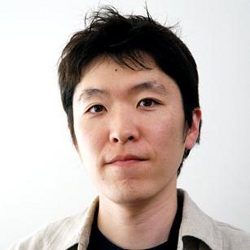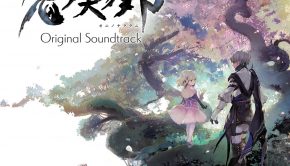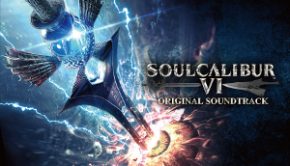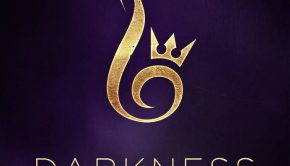Keiki Kobayashi Profile
 |
Also Known As: 小林啓樹 (こばやしけいき) |
| Date of Birth: June 6, 1974 (Japan) |
|
| Residence: Tokyo |
|
| Game Works: Ace Combat, SoulCalibur |
|
| Official Site: Namco Bandai Games |
History
| Organisation | Type | Tenure | Role |
| Namco | Game Developer | 1999 – 2006 | Composer |
| Namco Bandai Games | Game Developer | 2006 – 2012 | Composer, Sound Director |
| GE-ON-DAN | Artist Collective | 2010 – 2011 | Member |
| Namco Bandai Studios | Game Developer | 2012 – | Composer, Sound Director |
Biography
Keiki Kobayashi a leading composer at Namco Bandai Studios, best known for serving as the music director of the Ace Combat series. Born on June 26, 1974 in Japan, Kobayashi developed a taste for intense orchestral music while watching Space Battleship Yamato as a child. The artist learned to play the keyboard later in his youth and, following a motorcycle accident, became particularly passionate about performing. He went on to attend Toho College of Music to pursue composition and performance. He carefully considered career opportunities during his studies and, by chance, experienced a series of presentations from game companies looking to recruit talented graduates. Having attended air shows in his youth, Kobayashi felt attracted to play the game Ace Combat 2; the tense score for the title revealed the possibilities that game music could offer. Kobayashi went on to apply for a number of jobs to become a game composer and was accepted by his first choice Namco in 1999. Kobayashi’s first work at Namco was the arcade rhythm game TeknoWerk for arcades. While he only produced three short compositions, the title taught him much about the technical aspects of producing game audio.
Kobayashi was subsequently assigned to work on the PlayStation 2’s Ace Combat 04: Shattered Skies in 2001. Under the guidance of sound director Tetsukazu Nakanishi, the composer suitably accompanied the experience of aerial warfare with six rich orchestral scores and a library of additional sound effects. His compositions made a particularly large impact on several of the game’s critical missions, Blockade, Operation Bunker Shot, and Megalith, reflecting key concepts of the game such as “the boundless looming sky”, “the futility of war”, and “the desire for peace”. The final mission theme “Megalith -Agnus Dei-“ particularly appealed to players with its blend of epic orchestration and elegiac choral work and became a major selling point of its soundtrack release. Following this work, Kobayashi developed his capacity as an orchestral composer further with emotional ending themes on Tekken 4’s console soundtrack and the intimate main theme for Venus & Braves. With such roles, Kobayashi took Namco’s orchestral music to another level – on the levels of both composition and implementation – and made quite an impression on his superiors.
After his ground-breaking series’ debut, Kobayashi was promoted to the music director of Ace Combat 5: The Unsung War. As a result, Kobayashi took a much larger compositional role on this soundtrack – taking responsible for the majority of the stage, preparation, and cinematic themes. With the stage themes, he reflected the dynamics of flight, heroism of the fighters, and brutality of conflict with mature dramatic orchestrations, culminating in the final mission theme “The Unsung War”. He nevertheless considered the characters’ overwhelming desire for peace, particularly with the symbolic ending theme “The Journey Home”. Under his lead, the final score featured a historically large number of compositions for a Namco title – over 90 tracks – and even boasted performances from the Warsaw Philharmonic. He was asked to bring his rich orchestrations to an entirely different setting the subsequent year on SoulCalibur III, composing a range of march-like stage and ending themes under the direction of Junichi Nakatsuru. He also created further ending themes on Tekken 5 and had a recurring role creating the introduction cues for Ridge Racer 6, Ridge Racer 7, and Ridge Racers.
In subsequent years, Kobayashi continued to develop the music of the Ace Combat franchise. On Ace Combat Zero, the artist developed his emotionally-guided approach to scoring the series to represent the title’s one-on-one dogfights. One novel twist he incorporated was a flamenco component, at request from the director. Conscious that Spanish gamers would eventually listen to his music, he persevered to offer convincing flamenco stylings, with the help of solo guitarist Takanori Goto, and carefully integrated them with orchestral elements. The culmination of his offerings, “Zero”, was a multifaceted and ever-changing composition that reflected the contradictions of war; the track proved so popular that it was celebrated in twice at Press Start: Symphony of Games. Kobayashi inevitably returned as music director on Ace Combat 6. He integrated two major motifs at key points in the game. A heroic anthem was used to portray the liberation of Gracemeria, whereas a reflective lamentation recorded with the Trinity Boys Choir and Bulgarian Symphony Orchestra was featured in the final mission. While there were many hurdles to overcome during the production, Kobayashi felt proud of the product.
Due to his work on the Ace Combat series, Kobayashi ascended to become the chief of the company’s Sound Section 1. In 2008, Kobayashi returned to score SoulCalibur IV under the direction of Junichi Nakatsuru. The game’s darkest stage themes benefited from his musical aesthetic, while the cinematic and ending themes featured intricate, emotional underscore. One of Kobayashi’s contributions, “Phantasmagoria”, was performed by the Eminence Symphony Orchestra and served as a pinnacle of symphonic achievement for the franchise. His music for the game was later celebrated at the concert A Night in Fantasia 2009. Kobayashi went on to offer some specially tailored arrangements of SoulCalibur IV’s stage themes for the PSP spinoff SoulCalibur: Broken Destiny, as well as further character ending themes for Tekken 6. Though primarily known for his orchestral compositions to the Ace Combat and SoulCalibur, Kobayashi has recently made occasional guest contributions to several original albums, offering smooth jazz on From Dusk Till Dawn and electronic fusions on NanoSweep 6.He has further reflected his versatility as a songwriter for the anime adaptation of The Idolm@ster.
In 2011, Kobayashi returned as sound director for Ace Combat: Assault Horizon. With the series shifting from an alternate reality setting into real world locations, the soundtrack took a considerably different approach from previous entries in the series – placing a stronger emphasis on contemporary elements, ethnic instruments, and cinematic cues. Kobayashi’s award-winning main theme for the title, “Rebirth”, encapsulated the entire score. Much of the track shifted away from the series’ familiar orchestral stylings in favour of dark, rustic Middle Eastern performances inspired by the imagery of a sandstorm. Yet the rich military melody that eventually emerged is reminiscent of the composer’s earlier anthems and reinforces that, despite the shift in setting, Ace Combat is still a story about a desperate humanity. Under Kobayashi’s direction, the score emerged as the most lavishly implemented of the series, blending performances from the Northwest Sinfonia with solo vocalists and instrumentalists from East and West. He is currently scoring the 3DS&39; Disney Magic Castle: My Happy Life, where he will offer an orchestral sound of a more bright, fantastical sort.
References:
– Various Game & Album Credits
– Liner Notes Translations
– VGMdb Discography
– Official Profile (Japanese, Archived)
– Interview with Game Set Watch (English, January 2010)
© Biography by Chris Greening (September 2010). Last updated on January 23, 2013. Do not republish without formal permission.
Posted on January 23, 2013 by Chris Greening. Last modified on March 21, 2014.














